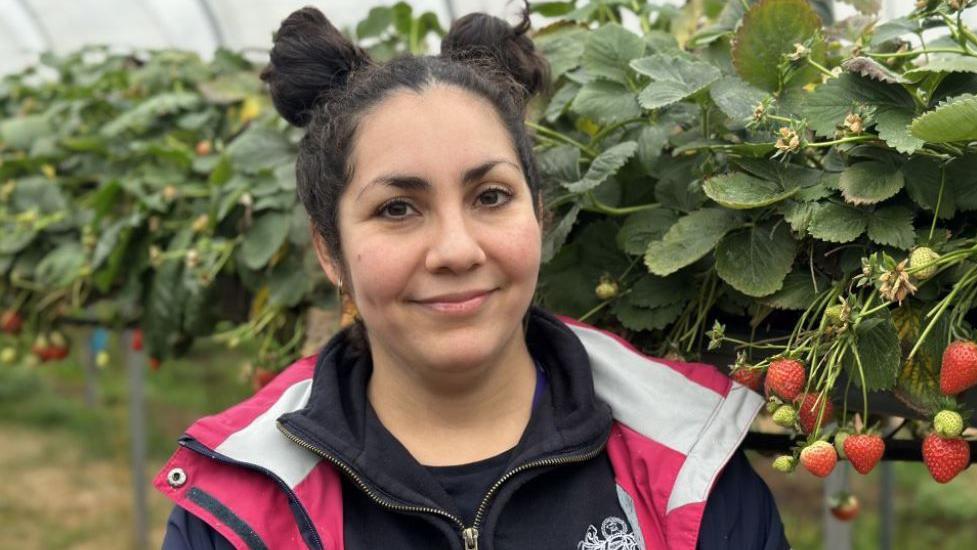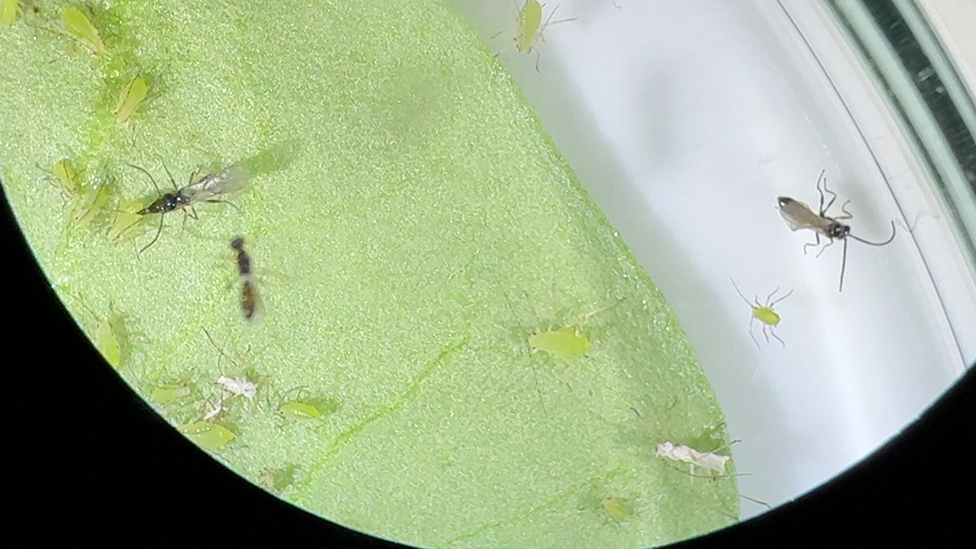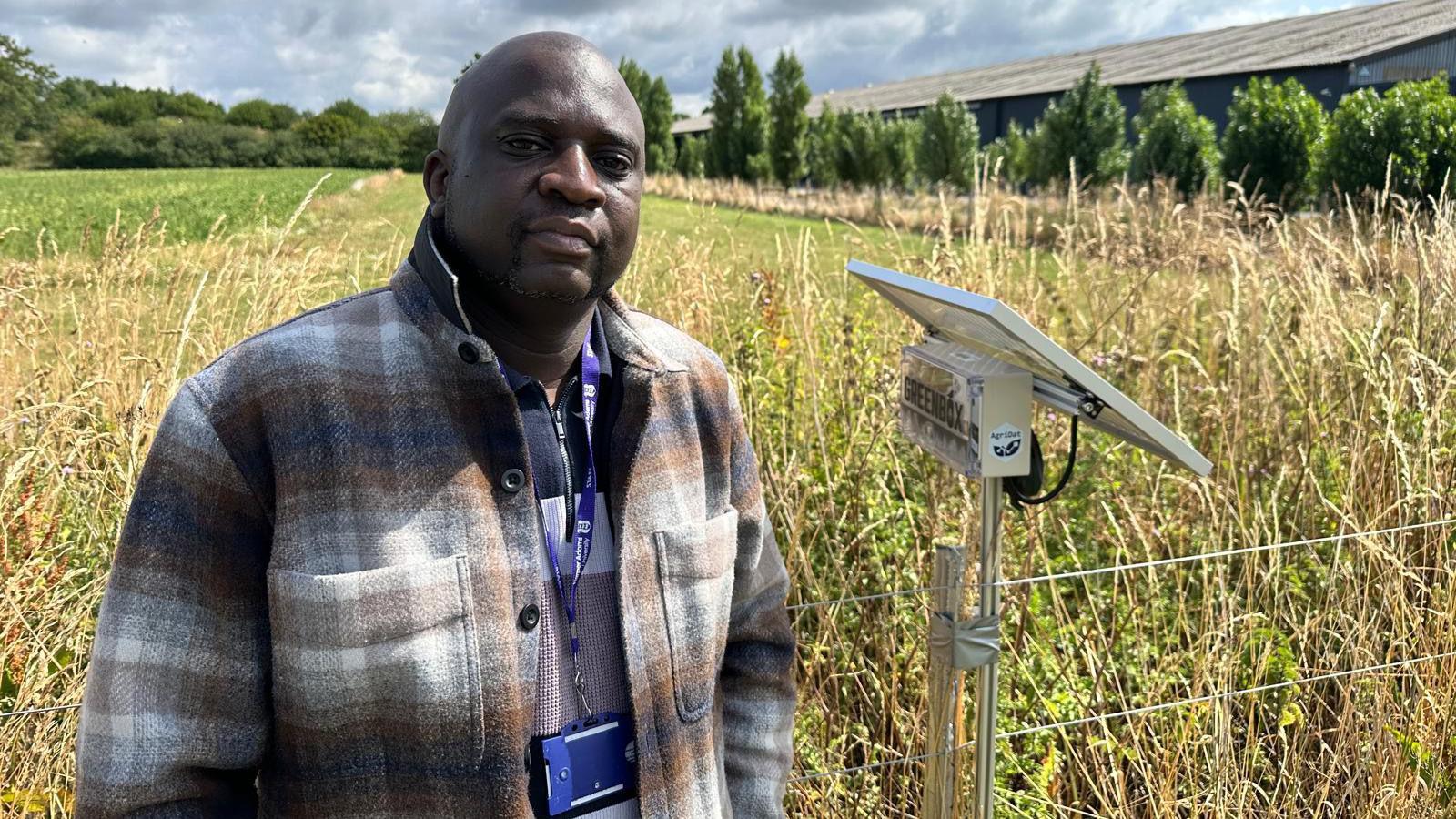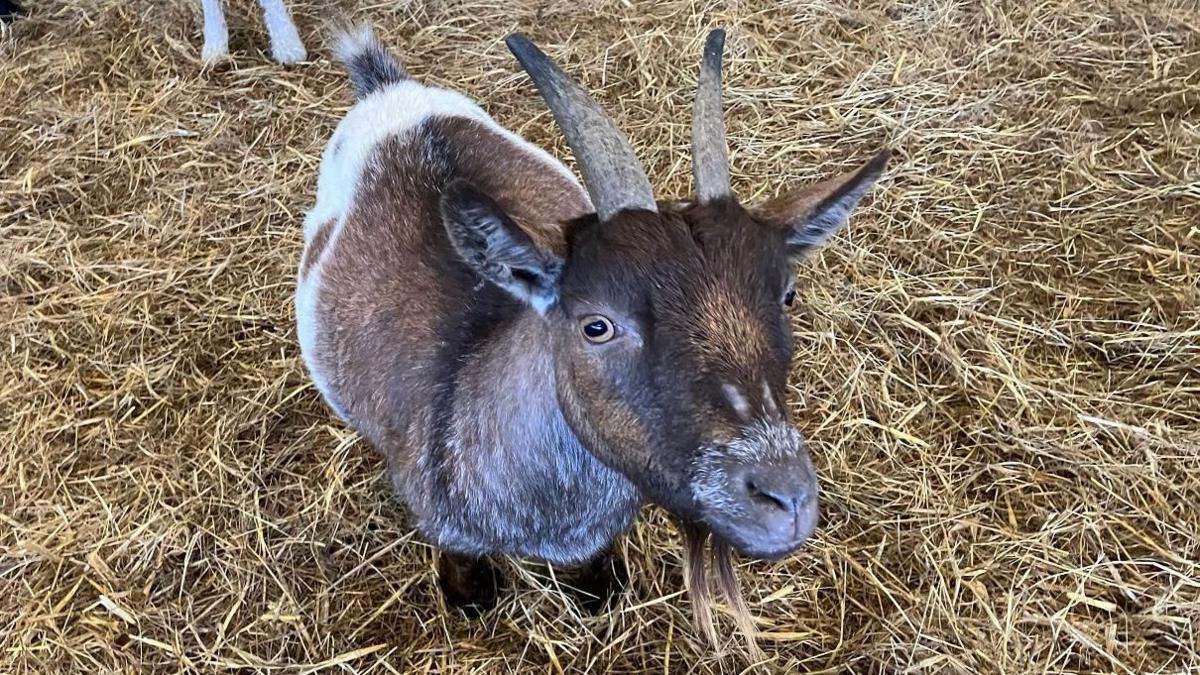Scientists look at new solutions to aphid problem

Laura Martinez-Chavez has been studying aphids' resistance to predators at Harper Adams University
- Published
Using other insects to control pests like greenfly has been a massive success story for farming, reducing the use of chemical pesticides.
But new research from Harper Adams University suggests the aphids may well be evolving resistance to this approach.
Scientists there are talking to the companies that farm wasps and produce other biological controls to alert them to the issue.
The solution might be to diversify the genetic mix of wasps and other predators, so they can out-evolve any resistance the aphids come up with.
On one Shropshire fruit farm, just down the road in Newport, there are still a surprising number of strawberries for early November.
The farmer there, Gabriel Slabbert, has used tiny wasps, no bigger than a grain of rice, to control a grower's eternal enemy, aphids.
This is biological pest control and Mr Slabbert said it was an "essential" tool for farmers.

Gabriel Slabbert has been using small wasps to protect his plants
He said many pesticides were restricted or even banned and supermarket buyers also wanted growers to reduce their chemical use.
"We hang a tube [containing wasps] at the side of the gutter. Open a little trapdoor and they fly out to do what they need to do," he said.
But the wasps do not eat the aphids, like ladybirds do, rather they inject an egg inside the aphid.
As it grows into a baby wasp it also kills the aphid and means the strawberries of Littywood Farm continue to thrive.
However, researchers at Harper Adams University have found that aphids are starting to become resistant to the commercially grown wasps.
"It's patchy, and sometimes they work fine," Laura Martinez-Chavez, from the university, said.
"But sometimes they don't work at all or at least aren't as effective as the grower expects them to be."

The wasps lay eggs inside the aphids, which would normally develop, killing their hosts
It is not unusual for pests to develop resistance to chemicals over time, but in this case some aphid populations have found a way of countering their predators by stopping their eggs developing inside them.
It means these particular wasps no longer kill the aphids and so are less effective or even useless as a form of pest control.
"It happens in nature" Entomologist Professor Tom Pope explained.
"First one side evolves resistance, but then the other evolves to overcome it."
There is a lot of complex genetics going on here, which the researchers are studying, while also warning the companies which produce the wasps of the danger.
The likely solution is to diversify the genetic mix of wasps and other predators.
Currently the extent of this resistance is unclear, but by taking action now it is hoped the industry can preserve the effectiveness of biological control in the long term.
Get in touch
Tell us which stories we should cover in Shropshire
Follow BBC Shropshire on BBC Sounds, Facebook, external, X, external and Instagram, external.
Related topics
More stories like this
- Published2 November

- Published1 August

- Published17 July

- Published30 January
